Talk Like A Pirate Day
Today's post is a departure from the usual deadly serious talk about commas and dangling modifiers, but it IS all about speech.
 -- as in the 11th annual Talk Like A Pirate Day (TLAPD for short) that takes place every Sept. 19 all over the world.
-- as in the 11th annual Talk Like A Pirate Day (TLAPD for short) that takes place every Sept. 19 all over the world.
On a lighter note, here's one group we really hope 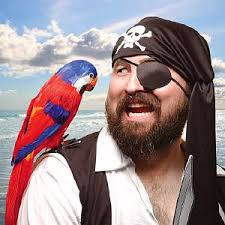 doesn't suffer from any types of Parrot's Disease!
doesn't suffer from any types of Parrot's Disease!
event:  British
actor Robert Newton.
British
actor Robert Newton.
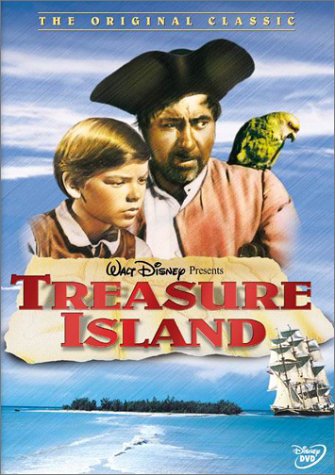
I would submit that the film is one of the greatest Disney
films, animated or live action, of all time. If you haven't seen it, go rent it or find it at your public library! You'll love it.
Robert Newton was one of the great character actors -- and great characters -- of the British cinema, best remembered today for playing Long John Silver in Treasure Island (1950) and its sequel for Walt Disney in the 1950s. His portrayal of Long John Silver and of Blackbeard, the Pirate (1952) created a persona that was so indelible that his vocal intonations created the paradigm for scores of people who want to "Talk Like a Pirate." The performance overshadows Newton's legacy, which is based on many first-rate performances in such movies as This Happy Breed (1944), Odd Man Out (1947) and Oliver Twist (1948), where his Bill Sykes is truly chilling. Oliver Reed, who played Sykes in the Oscar-winning movie musical Oliver! (1968) was influenced by Newton.
Read the full biography of Newton at http://www.imdb.com/name/nm0628579/?ref_=tt_ov_st.
And here's the "patron saint" reference (he was labeled as such by TLAPD co-founder Cap'n Slappy) in Wikipedia that also mentions TLAPD:
Newton is best remembered for portraying the feverish-eyed Long John Silver in the Walt Disney version of Treasure Island, which became the standard for screen portrayals of pirates. Hailing from the West Country that was also the birthplace of many famous English pirates, Newton is credited with popularising the stereotypical West Country "pirate voice" by exaggerating his West Country accent.[1] Newton has become the "patron saint" of the annual International Talk Like a Pirate Day on 19 September.
With his strong West Country accent, Newton portrayed Bristol's other famous pirate Blackbeard the Pirate in a 1952 film directed by Raoul Walsh and also starring Linda Darnell and William Bendix.
(see more at http://en.wikipedia.org/wiki/Robert_Newton.)
Anyone under age 40 probably can't relate to this, but
when I was in elementary school, before the age of videos and the
Internet and handheld gadgets, it was a really, really big treat for the
school to invite the children into the gym (we had no auditorium), all filled with chairs, once or twice a year for a screening of some film
that the school obtained a copy of. Not discs or videotapes but actual reels of film shown via a projector.
I recall one year the school showed "Treasure Island." It was perhaps the best 90 minutes or so that I spent in
all the years of elementary school. I was spellbound by Newton's
fantastic portrayal of the main pirate in the film, Long John Silver.
How fantastic was his performance? So fantastic that even though he was a typical pirate -- a
lying, conniving, greedy, backstabbing, murderous fiend and rogue -- you end up rooting
wholeheartedly for him and (spoiler alert! skip to next paragraph if you don't want to know) are overjoyed that he averts
a hangman's noose at the end.
Often credited with originating the style of speech generally equated with pirates. After his spectacular turn as Long John Silver in the Disney version of Treasure Island (1950), actors playing pirates in film, radio, television, and theatre, all tended to use (and still use) the same pseudo-Cornish accent Newton came up with.
raise the
Jolly Roger  in salute to the greatest pirate actor of all time, Robert Newton!
in salute to the greatest pirate actor of all time, Robert Newton!
 in salute to the greatest pirate actor of all time, Robert Newton!
in salute to the greatest pirate actor of all time, Robert Newton!Ever since Dave Barrymentioned us in his nationally syndicated newspaper column in 2002, what once was a goofy idea celebrated by a handful of friends has turned into an international phenomenon that shows no sign of letting up. Maybe you read about us on line.. Maybe you caught one of our radio or TV interviews. Or maybe you just stumbled on to our site while googling around for sites your mother probably wouldn't approve of. Or perhaps you're one of the millions of people from South Africa to the South Pole, from New York to the Pacific Northwest, who've made it your own personal excuse to party like pirates every September 19th (and sometimes for days before and after)!
The "us" in the previous paragraph refers to co-founders
 Mark "Cap'n Slappy" Summers and
Mark "Cap'n Slappy" Summers and John "Ol' Chumbucket"
 Baur, who are referred to this way on the official site:
Baur, who are referred to this way on the official site:Ol' Chumbucket and Cap'n Slappy are actually two reasonably well-adjusted middle-aged guys who are trying to take what started as a small private joke and turn it into a productive job.
International Talk Like a Pirate Day was a whimsical notion that started with a racquetball injury. That "ARRR!" heard round the world. It was a concept that made us laugh -- but we had no idea it would every get this big -- worldwide following. It is both infectious and addictive -- that is, if you are outside and someone yells, "ARRRR, me mateys!" It would be very difficult to resist the pull of your inner "ARRR!" in response. That's the infectious part. But it wouldn't stop there -- as you continue talking like a pirate you can't resist the urge to say things like, "Splice the mainbrace!" or to refer to children as "wee sprogs!" or to shout "Shiver me timbers!" in surprise -- and then begin to make up your own phrases -- like, "Great Neptune's Salty Man Nipples!" or "I'll be hornswoggled for a Dutchman's potty!"
That's the great thing about it -- you don't have to even know what your saying if it just SOUNDS piratty.
Complete strangers bond over enthusiastic attempts to bellow forth a lot of nautical nonsense from centuries past. Perhaps part of the fun is that pirates appear to eschew all punctuation except for the exclamation point. And there's something refreshing in replacing the pedestrian swear words we use when referring to lousy drivers with, "Ye filthy bilge rats!"
But that's the secret gift the day gives. The permission to let your freak flag fly - so long as your freak flag is a jolly roger.
These scurvy dogs even have put out a few books, including
the delightful "Pirattitude." 

Want to know more about the two men and how to contact them? About the event? About TLAPD events taking place near you? About awesome merchandise they sell? Check out these sites. I should add that I have no connection to them and no financial interest. I simply love the concept and want everyone to know about TLAPD!
* The official TLAPD website: http://www.talklikeapirate.com/contact.html
* The TLAPD Facebook page: https://www.facebook.com/InternationalTalkLikeAPirateDay
* Watch a short video that explains the finer points of Pirattitude: http://www.youtube.com/profile?user=OfficialWench
* IMDb's entry on "Treasure Island": http://www.imdb.com/title/tt0043067/

 turn into such a problem?
turn into such a problem?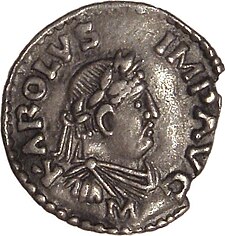 was crowned emperor in
was crowned emperor in  that habit of blindly copying what we see without ensuring it is correct.
that habit of blindly copying what we see without ensuring it is correct.
 The lion in the fable proclaims that he merits
The lion in the fable proclaims that he merits  should be
should be 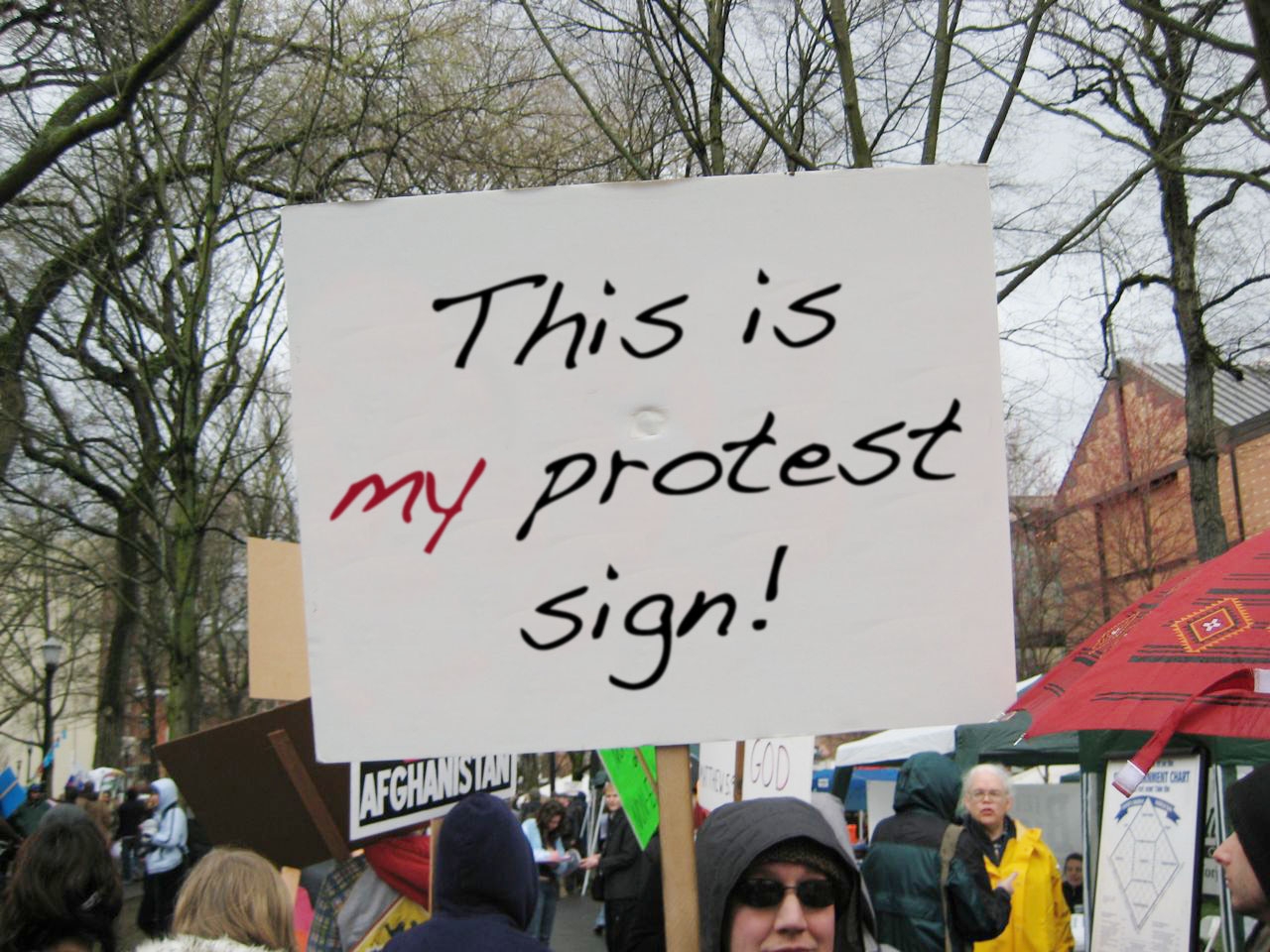 and sexually suggestive lyrics in the song, but the publicity from the demonstrations
and sexually suggestive lyrics in the song, but the publicity from the demonstrations 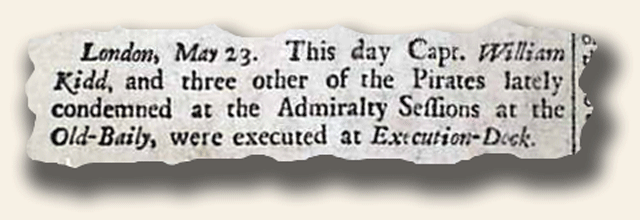
 the famous
the famous